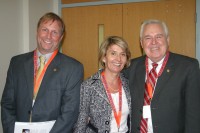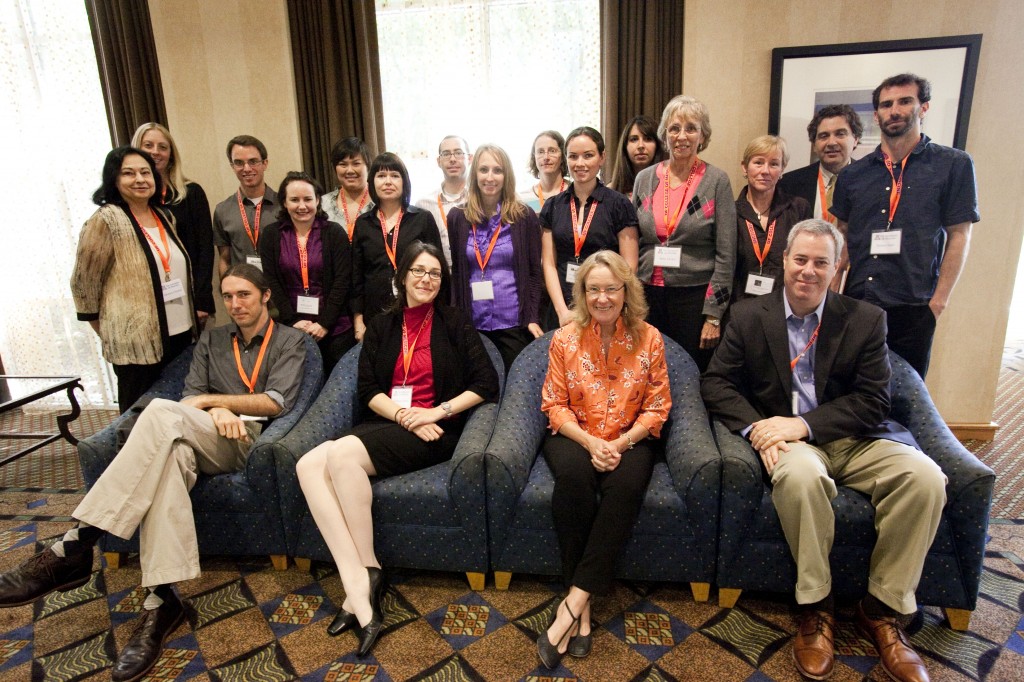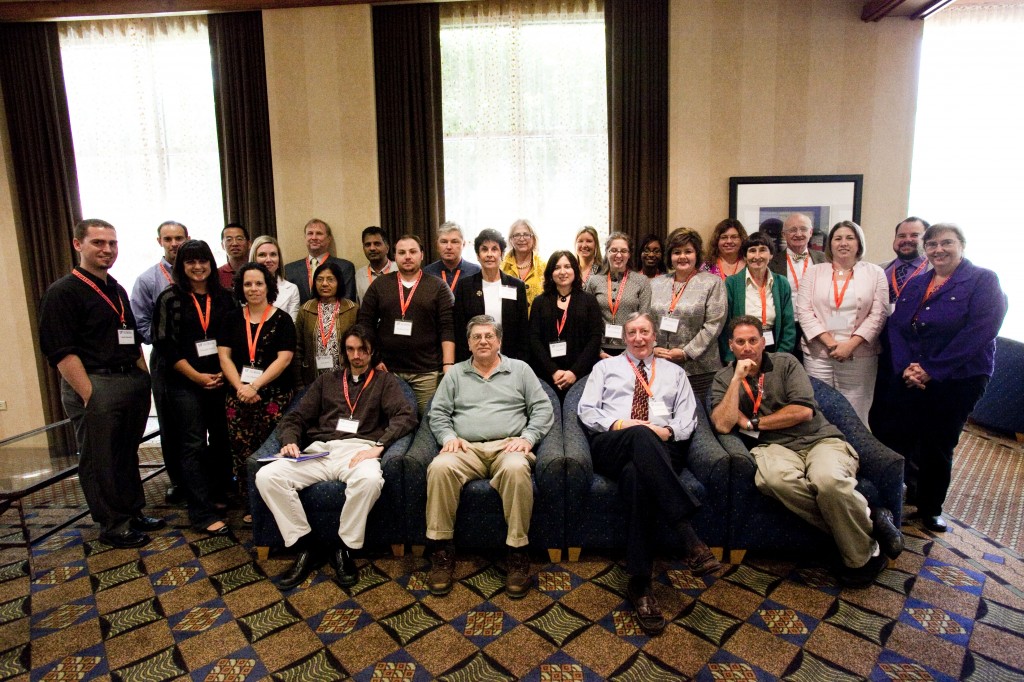
Researchers from McKnight Brain Research Foundation-supported institutes at the University of Miami, the University of Alabama-Birmingham and the University of Arizona recently gathered at the first such brain institute ever established: the Evelyn F. and William L. McKnight Brain Institute of the University of Florida.
After a welcome from Dennis Steindler, Ph.D., executive director of UF’s McKnight Brain Institute, scientists and McKnight board members visited labs and learned about programs related to magnetic resonance neuroimaging, radiosurgery and deep brain stimulation surgery, cell and tissue analysis, gene therapy, exercise and the unique Oak Hammock-University of Florida partnership.
The occasion was the McKnight Brain Research Foundation’s third Inter-Institutional meeting. Leading neuroscientists and clinicians discussed efforts to stave off age-related memory loss and measures to begin human clinical trials directed at age-related memory decline.
“Research has provided clues to the causes for memory decline,” said Thomas Foster, Ph.D., the Evelyn F. McKnight chair for brain research in memory loss at UF’s McKnight Brain Institute and the College of Medicine. “One goal is to use this information to predict and prevent cognitive decline prior to clinical signs and symptoms.”

Foster moderated a group of medical doctors who will discuss how to bring diagnostics and treatments for age-related memory loss to the clinic during one of the sessions.
Also taking part were Eric Reiman, director of the Alzheimer’s disease research program at the University of Arizona and clinical director of the neurogenomics division of the Translational Genomics Research Institute, and Ralph Sacco, executive director of the Evelyn F. McKnight Center for Age Related Memory Loss at the University of Miami. Marco Pahor, M.D., the director of the UF Institute on Aging who is leading a National Institutes of Health grant to construct a 40,000-square-foot complex for clinical and translational research; Wajeeh Bajwa, director of clinical affairs and licensing with UF’s Clinical and Translational Science Institute; and Hubert Fernandez, director of clinical trials for movement disorders at UF, also participated.
“The purpose of the inter-institutional meeting is to bring together the McKnight researchers and share data,” Foster said. “We want to strengthen our collaborations, focus on doing the translational research and ultimately conduct clinical studies to solve problems of learning and memory in aging. We want to be able to successfully treat cognitive loss and decline.”
UF’s Evelyn F. and William L. McKnight Brain Institute was named for an endowment established by the foundation in 2000 that with matching funds amounted to $30 million to develop therapies and treatments to preserve memory for a lifetime, no matter how long the lifetime may be.






